Don Dixon is an American record producer, songwriter, and musician. He is considered to be one of the key producers of what is called the jangle pop movement of the early 1980s, including working with R.E.M. and The Smithereens.

Flip-Flop is the fourth and final studio album by the American band Guadalcanal Diary. It was released in 1989 on Elektra Records. The band supported the album with a North American tour. "Always Saturday", for which a video was shot, was released as a single.
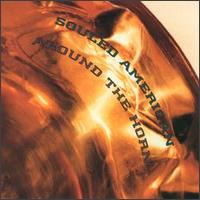
Around the Horn is the third album by the Chicago-based band Souled American. It was released in 1990 by Rough Trade Records. The band supported the album by touring with Camper Van Beethoven.

Fromohio is the third album by the American alternative rock band Firehose, released in 1989. The album maintained the acoustic and folky sound of If'n.

Soul Rotation is the sixth studio album by the Dead Milkmen, released in 1992. It was their first album to be released on Hollywood Records. The album was digitally re-released in 2013, after being out of print for many years.
Marti Jones is an American singer and visual artist known for her albums and her paintings. She exhibits visual art as "Marti Jones Dixon."
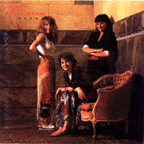
Speak is an album by the American musical trio the Roches, released in 1989 on MCA Records. The album contained two singles that had accompanying videos, "Big Nuthin'" and "Everyone Is Good". Another track, "Nocturne", was included in the 1988 film Crossing Delancey, which costarred Suzzy Roche.

Like This is the third studio album by the American power pop band the dB's, released in 1984 via Bearsville Records. The band recorded as a trio following the departure of Chris Stamey. The album includes a re-mixed version of "Amplifier", the lead single from their previous album, Repercussion.

Mo'Roots is an album by the American saxophonist Maceo Parker, released in 1991. It peaked at No. 4 on Billboard's Traditional Jazz Albums chart.

The Prophets is an album by the Ivorian musician Alpha Blondy, released in 1989. He is credited with his band, the Solar System. Blondy sang in French, Dioula, Arabic, and English.

Edge of Allegiance is the third album by the American band Timbuk 3, released in 1989.

Corruption is an album by the Zimbabwean musician Thomas Mapfumo, released in 1989. The album criticized the government of Robert Mugabe. Mugabe's displeasure with the criticism eventually forced Mapfumo into exile, and Mapfumo's music was barred from Zimbabwean radio. The title track was discussed in the Zimbabwean parliament, around the same time as several government officials were indicted as part of a smuggling ring.
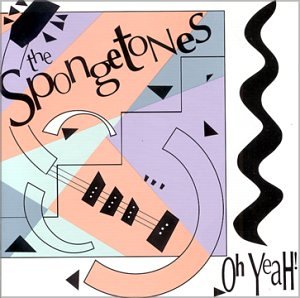
Oh Yeah! is an album by the American band the Spongetones, released in 1991. It was issued by the Shoes' Black Vinyl Records, and was one of the first non-Shoes albums to be released by the label. Oh Yeah! was reissued in Japan by Sony Records, in 1995.

Toots in Memphis is an album by the Jamaican musician Toots Hibbert. Released in 1988, Toots in Memphis was recorded without the Maytals. The majority of the album's tracks are covers of American R&B songs.

Forgery is an album by the American band Monks of Doom, released in 1992. It was the band's first album to be distributed by a major label, and their second after the breakup of the members' former band, Camper Van Beethoven. Monks of Doom supported the album with a North American tour.

Thunder and Fire is an album by the American band Jason & the Scorchers, released in 1989. The band promoted the album by playing shows with, among others, Webb Wilder and Bob Dylan. "When the Angels Cry" and "Find You" were released as singles.
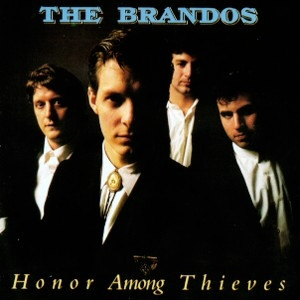
Honor Among Thieves is the debut album by the American band the Brandos, released in 1987. The first single was "Gettysburg", which was a minor hit on radio and MTV.
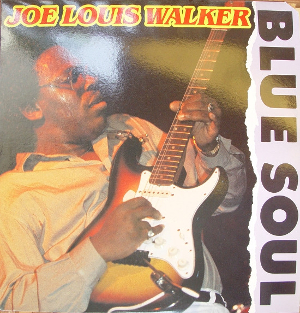
Blue Soul is an album by the American musician Joe Louis Walker, released in 1989. Walker supported the album with a North American tour, backed by the Boss Talkers.

Used Guitars is an album by the American musician Marti Jones, released in 1988. Jones supported the album by playing shows that included many of the album's guest musicians. The album was a commercial disappointment, and A&M Records dropped Jones shortly after its release.
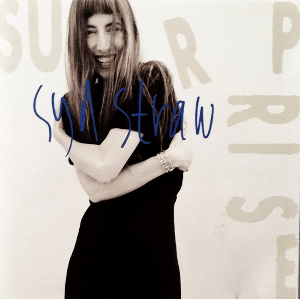
Surprise is the debut solo album by the American musician Syd Straw, released in 1989. The first single was "Future 40's ". Straw supported the album with a North American tour, backed by a band that included D.J. Bonebrake and Dave Alvin. Surprise was a commercial disappointment.


















